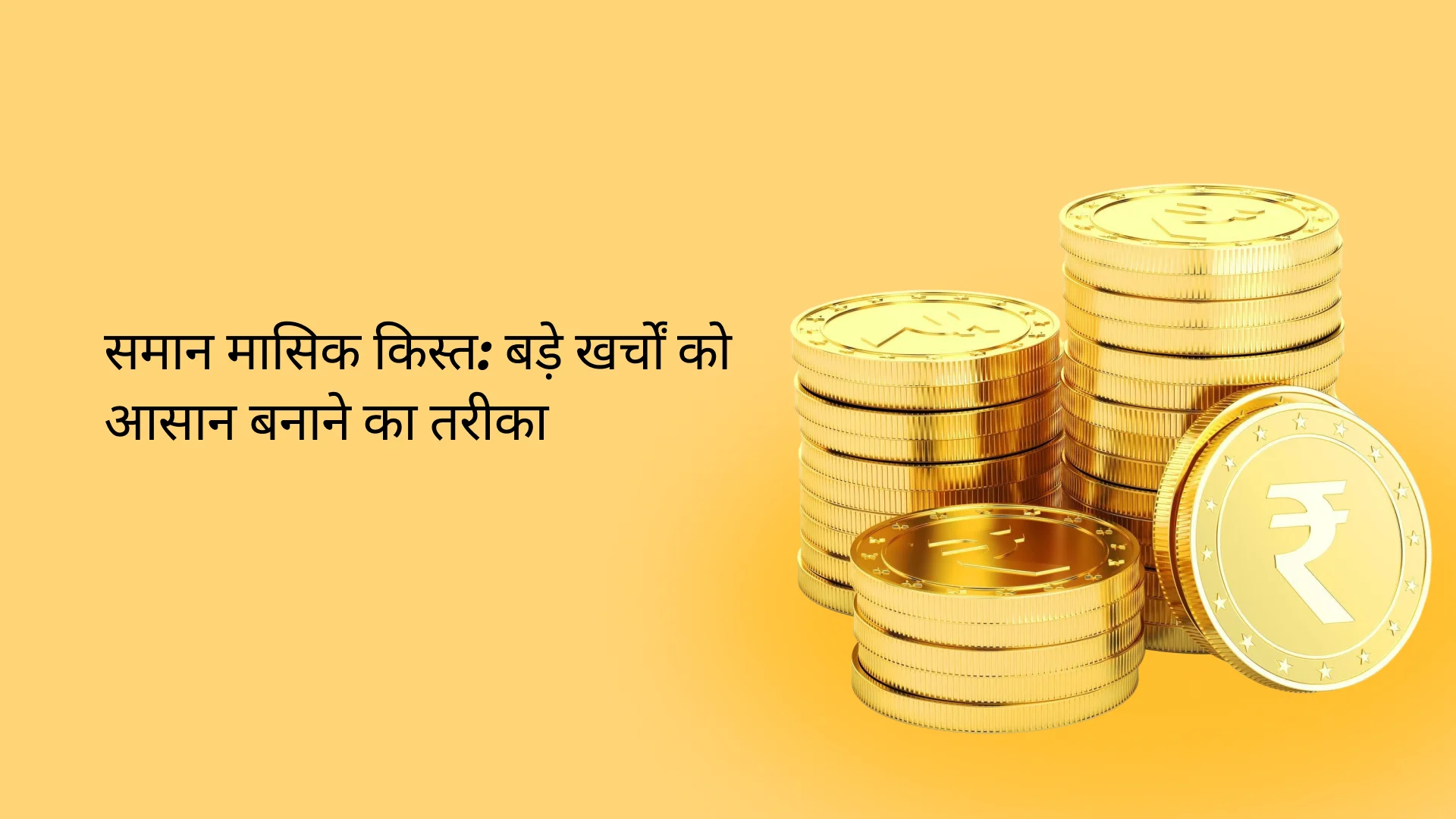How to Avail Tax Benefits on Personal Loan?

Loan providers have helped millions of people get money right in a time of need. From unexpected bills & medical emergencies to new phones & solo trips, personal loans empower you to make it all happen.
But want to know another good thing about taking personal loans?
Table of Contents
TogglePersonal Loan Tax Exemption 2025
A personal loan is not directly tax-deductible, but tax exemptions apply based on loan usage. If the loan is used for home renovation, business expansion, or education, you may claim deductions under Sections 24(b), 80C, or 80E of the Income Tax Act. However, loans for personal expenses like vacations or weddings do not qualify for exemptions. Keep records of your loan usage and interest payments to avail of benefits. In 2025, understanding these exemptions can help you optimize tax savings while managing your finances efficiently.
Are Personal Loans Taxable?
Since personal loans are not a part of your income, they’re not taxable. This means, there are no additional tax benefits on them.
However, there are certain scenarios in which you may be able to claim some benefits on them. But this will only be applicable if you borrow money from a bank or NBFC that holds a RBI license and follow all the regulatory practices for the same. You will also require the appropriate paperwork and evidence for it.
Want to know in which scenarios you can personal loan save tax? The keep reading this blog:
3 Scenarios Where You Can Claim Personal Loan Tax Benefits
1) You Use Your Personal Loans in Purchasing, Renovating or Renting a Property
Under Section 24(b) of Income Tax Act, 1961, if you use your loan amount in constructing or purchasing a piece of property, you can be exempted from the interest rate paid on it.
You can claim the interest in 3 circumstances:
- If you use your personal loan in acquisition, construction, repairing or re-construction of your let-out property.
- If you use your personal loan in acquisition or construction of a self-occupied residential property, you are exempted the interests up to ₹2 lakhs.
- If you use your personal loan for home renovation or reconstruction, repairs or renewal of a self-occupied residential property, you are allowed a deduction up to ₹30,000.
Keep all the relevant and important documents handy to claim these deductions.
2) You Invest Your Personal Loans in Business
If you have invested your personal loans into your business, then the interest rate charged on that loan is considered as an expense.
If you’re wondering, “Can a personal loan save tax?”, the answer depends on how you use the loan. While you can’t claim a tax deduction in the same year, the interest paid on a personal loan used to purchase an asset (like property or investments) is considered part of the acquisition cost. This means you can claim the interest amount as a deduction when you sell the asset, potentially reducing your capital gains tax liability.
Under Section 37(1),you can claim the interest of the loan you invested in your business. The deduction can be applied either for investment or the expansion of your business.
Be sure to provide the appropriate documentation that shows the loan was invested in or expansion of the business.
3) You Invest Your Personal Loans in Other Assets
If you are investing your personal loans in certain assets such as jewellery, shares, or non-housing properties then you can claim the tax deducted on the interest.
You won’t be able to claim the deduction in the same year but the interest amount for purchasing the asset is considered as an acquiring cost. You can claim the interest in the year you sell off the asset.
Also Read: What is Form 16? Differences Between Form 16, Form 16A, 16B
Different Tax Deductions and Exemptions Available on Personal Loans
Tax benefits on personal loans depend on how you use the funds. If used for home purchase or renovation, you can claim a deduction on interest paid under Section 24(b) (up to ₹2 lakh per year). If used for business purposes, the interest paid is considered a business expense and can be deducted from taxable income. Loans taken for education may qualify for deductions under Section 80E. However, if the loan is used for personal expenses like travel or weddings, no tax benefits apply. Keeping proper records of loan utilization is essential to claim exemptions.
In Conclusion
The personal loans you take are not taxable, because they aren’t a part of your income. And now you also have unlocked an added advantage of saving taxes on your personal loan.
If you’re considering “Can a personal loan save tax?”, it’s crucial to borrow from a legitimate source. Avoid suspicious lenders, as funds received this way may be treated as taxable income, making it ineligible for tax deductions. To ensure tax benefits and financial security, always opt for a registered bank or NBFC when taking a personal loan.
For instance, Zype is a fintech platform that follows all the regulatory requirements, making it a credible source through which you can avail a personal loan and claim personal loan tax benefit.
Frequently Asked Question
Is A Personal Loan Covered Under 80c?
If you borrow money for purchasing, constructing, or renovating your home you can get a tax benefit on your personal loan. However, contact a financial advisor CA before trying to claim these benefits.
Can I Claim Personal Loan Tax Benefit Interest?
While you may be unable to claim tax benefits on the personal loan amount you take, you can claim it on the personal loan interest in certain scenarios.
Can I Show A Personal Loan In ITR?
Yes you can. If you take a personal loan in scenarios which are eligible for tax benefits, then you can show a personal loan in ITR.
Is Personal Loan For Marriage Tax Exemption?
No, a personal loan used for marriage is not eligible for any tax exemptions.
How Much ITR Is Required For A Personal Loan?
Most lenders require an ITR of at least ₹2-3 lakh per year for salaried individuals and ₹3-5 lakh for self-employed applicants. A higher ITR improves loan approval chances and may lead to lower interest rates, as it demonstrates financial stability and repayment capacity.
How To Get Tax Benefits On A Personal Loan?
Tax benefits on personal loans depend on how the loan is used. If used for home renovation, business expansion, or education, you can claim deductions under Sections 24(b), 37(1), or 80E. Keeping records of loan utilization is necessary to avail tax benefits.
Is 80c Deductible For A Personal Loan?
No, Section 80C does not cover personal loans. Deductions under 80C apply to expenses like life insurance premiums, PPF, ELSS, and home loan principal repayment. However, if a personal loan is used for home construction or business, other sections may offer tax benefits.
Which Loans Are Eligible For Tax Exemption?
Several loans offer tax benefits under the Income Tax Act:
- Home Loans: Under Section 24(b), you can claim a deduction of up to ₹2 lakh on interest paid for a self-occupied property.
- Education Loans: Section 80E allows deductions on interest paid for loans taken for higher education, with no upper limit on the amount.
- Business Loans: Interest paid on loans used for business purposes can be claimed as a business expense under Section 37(1).
- Personal Loans: If used for home renovation, business investment, or purchasing assets, the interest may be deductible under relevant sections.
YOU MAY ALSO LIKE

Search by posts
Recent post
-
 Instant ₹10,000 Loan Without Salary Slip – Quick Approval
Instant ₹10,000 Loan Without Salary Slip – Quick Approval
-
 समान मासिक किस्त: आपकी वित्तीय खर्चों को आसान बनाने वाला तरीका
समान मासिक किस्त: आपकी वित्तीय खर्चों को आसान बनाने वाला तरीका
-
 Apply for 50000 Rupees Loan Urgently: Get Disbursed in Few Minutes
Apply for 50000 Rupees Loan Urgently: Get Disbursed in Few Minutes
-
 How to get Instant Loan on Aadhaar Card without Salary Slip
How to get Instant Loan on Aadhaar Card without Salary Slip
-
 How to Apply for a Rs. 25,000 Loan on an Aadhaar Card?
How to Apply for a Rs. 25,000 Loan on an Aadhaar Card?
Categories
- Blog (6)
- Credit History (36)
- Credit Line (7)
- Festive (4)
- Finance (15)
- Mutual Fund (19)
- Personal Loan (276)
- Tax (8)
- Zype (4)













